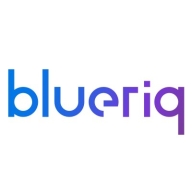

Pega Platform and Blueriq are competitors in process automation and business management solutions. Pega Platform typically has an advantage in scalability and modern technology, whereas Blueriq shines in flexibility and ease of use.
Features: Pega Platform includes advanced automation, AI, and strong case management, ideal for large enterprises. It focuses on enterprise-grade capabilities. Blueriq supports model-driven development, quick adjustments, and prioritizes agile and custom solutions.
Ease of Deployment and Customer Service: Pega Platform offers comprehensive deployment options and extensive training but can be complex to implement. Blueriq provides simpler deployment and responsive customer support, ensuring faster implementation.
Pricing and ROI: Pega Platform reflects its full feature set and offers a high return on investment over time, but initial costs may deter smaller organizations. Blueriq provides competitive pricing and faster ROI due to efficient deployment and lower upfront costs.
| Product | Market Share (%) |
|---|---|
| Pega Platform | 3.7% |
| Blueriq | 1.1% |
| Other | 95.2% |


| Company Size | Count |
|---|---|
| Small Business | 11 |
| Midsize Enterprise | 16 |
| Large Enterprise | 69 |
Blueriq offers a sophisticated platform designed for creating adaptive applications with a focus on improving business processes across sectors. It empowers developers to generate solutions that align closely with business needs.
Blueriq stands out by enabling stakeholders to collaboratively innovate through model-driven development. Its platform supports rapid iteration and deployment of applications, allowing for seamless adaptation to changing business workflows. This dynamic tool enhances engagement and operational efficiency, catering specifically to sectors looking for robust process automation and optimization capabilities.
What are Blueriq's most crucial features?Blueriq is implemented across industries such as finance and healthcare, where it drives digitization of processes and enhances case management efficiency. These sectors benefit from its capability to swiftly adapt applications to meet industry-specific regulations and demands, ensuring compliance and competitive advantage.
Pega Platform provides flexible business process management with a focus on rapid application development and automation through a low-code approach, enhancing efficiency across sectors.
Pega Platform is renowned for its ability to streamline operations with robust automation features, including robotic process automation and decision-making capabilities. Its intuitive interface and workflow management contribute to a reputation for enhancing business processes. Although users face challenges with integration limitations and high licensing costs, they benefit from rapid deployment and efficient process adaptations. The unified architecture reduces complexity, while case management and integration services support digital transformations in sectors such as banking, insurance, and healthcare.
What are the key features of Pega Platform?
What benefits and ROI should users expect?
In industries like insurance, banking, healthcare, and government, Pega Platform is implemented to automate diverse workflows, supporting initiatives from claims processing to customer onboarding. Enterprises use Pega for case management and digital transformations, valuing its out-of-the-box integrations and real-time reporting capabilities to boost operational automation and enhance customer experiences.
We monitor all Business Process Management (BPM) reviews to prevent fraudulent reviews and keep review quality high. We do not post reviews by company employees or direct competitors. We validate each review for authenticity via cross-reference with LinkedIn, and personal follow-up with the reviewer when necessary.